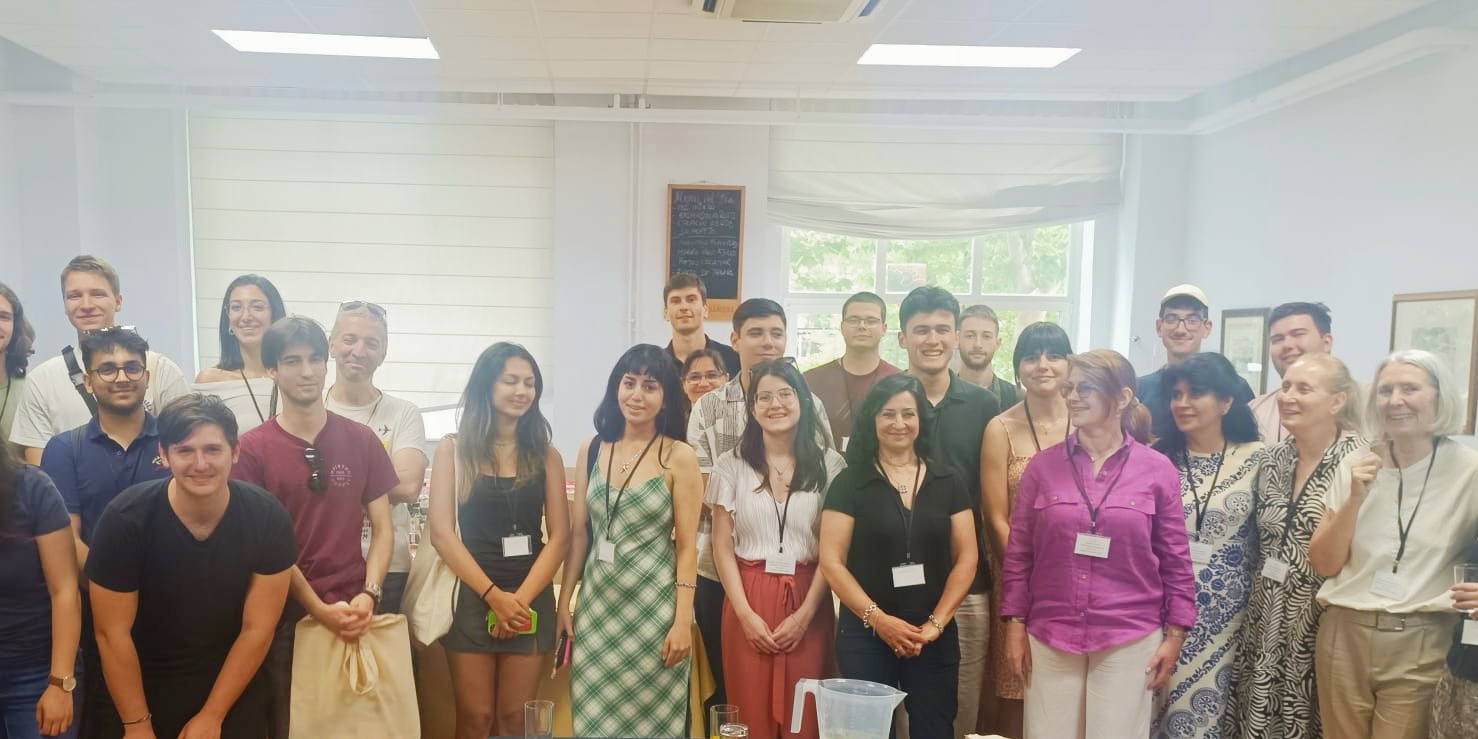In summer 2025, the SSERIES (Science for a Sustainable Envision of Reality and Information for an Engaged Society) EELISA Community hosted the Gamified Education for Next International University Students (GENIUS) wich culminated with a Final International Event in Madrid, bringing together students and faculty from four major technical universities — BUCHAREST (UPB), BUDAPEST (BME), MADRID (UPM), and ISTANBUL (ITU). Participants collaborated in mixed international teams on challenge-based projects across mathematics, physics, IT, and sustainable technology, all designed to transform STEM education through gamified, interdisciplinary learning
In this edition of EELISA Narrators, UPB student Alexandru Valentin Avram, a third-year Engineering Physics student at UPB, reflects on his inspiring experience as a participant in the GENIUS programme.
From tackling tough interdisciplinary challenges to working together with peers from different countries, Alexandru’s journey at the final event held at Universidad Politécnica de Madrid really embodies what EELISA is all about: innovation, diversity, and impactful learning.
Read his story to discover how students are making cities smarter and more sustainable, all while forging lasting international friendships.
My name is Alexandru Valentin Avram, and I had the great opportunity to participate in the GENIUS project – “Gamified Education for Next International University Students,” which culminated in the Final Interdisciplinary Contest held at Universidad Politécnica de Madrid between June 19–20, 2025.
The GENIUS – EELISA project brought together students and professors from four leading technical universities in Europe – Bucharest, Budapest, Istanbul, and Madrid – in a collaborative challenge-based learning environment. The final event in Madrid tested our theoretical and practical skills through a two-day competition involving quizzes and interdisciplinary project presentations in mathematics, physics, and IT.
I was part of Team 1, along with peers from Turkey, Spain, and Hungary. Our project, titled “Smart City 2.0: Next-Gen Materials Transforming Technologies” focused on sustainable solutions for urban environments using wearable technology, artificial intelligence, and innovative construction materials.

My specific contribution was researching and proposing eco-friendly technologies for air and water purification, such as photoactive concrete doped with titanium dioxide, green moss walls, and biochar-mycilium-based water filters. I also developed a 5-step implementation plan, including cost analysis, timeframes, and environmental impact.
The competition was intellectually stimulating and required both quick thinking and strong teamwork. The quiz phase challenged our analytical and collaborative skills, while the project presentations pushed us to apply our scientific knowledge to real-world problems. I especially appreciated the open dialogue with professors from other universities about teaching methods and sustainability in education.
Our team was awarded 2nd place, a recognition that highlighted our effort, interdisciplinary collaboration, and innovative thinking. But beyond the podium, the true reward was the chance to work in a multicultural environment, learn from others, and explore new perspectives in science and engineering.
I would like to extend my sincere thanks to our gracious hosts at Universidad Politécnica de Madrid for their warm welcome and outstanding organization. Their dedication made the event not only possible but truly memorable.
I am also deeply grateful to the professors and academic mentors from UPB, who offered invaluable guidance, insightful feedback, and inspiring conversations throughout the program. Finally, I want to thank my teammates and fellow participants from all partner universities — working together, sharing ideas, and building friendships with you was an unforgettable experience that I will always cherish.
Participating in GENIUS has been a defining experience in my academic journey. It helped me grow technically and personally, boosted my communication skills in English, and offered insight into European academic diversity.
I am grateful to my university for supporting this opportunity and highly encourage fellow students to join EELISA projects. They are a gateway to meaningful learning, professional growth, and international friendships.


